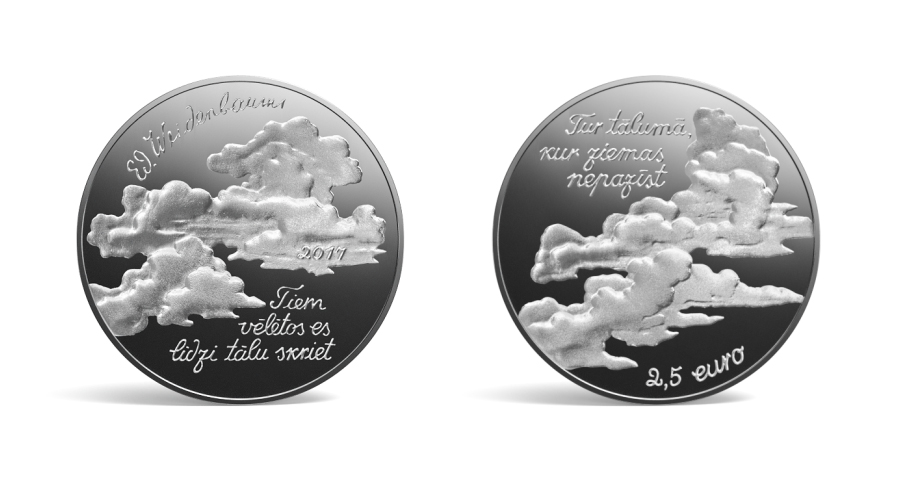

"You flashed like a shooting star across the sky of art..." these words were dedicated to Eduards Veidenbaums (1867–1892) by his friend and poet Edvards Treimanis-Zvārgulis (1866–1950). However, if we do compare him to a celestial body, he was more like a supernova: we only see the extreme brightness of its explosion after the star itself is already gone. The power of the poet's talent, unknown to a wider range of readers during his lifetime, has not subsided over the years. His poetry, created at the end of the 19th century, has remained surprisingly topical: people know Veidenbaums' poems by heart and quote him, composers use his lyrics for music also in the 21st century. "Awaken thee, free spirit", "The clouds pass by like white swans", "My thoughts are deep", and other lines of his verse are known not only by literary historians, they are still used in everyday communication.

Eduards Veidenbaums belonged to the first generation of Latvian intellectuals for whom academic education was no longer a unique and rare case: Latvian peasants, having been free from serfdom already for half a century, tended to provide education to their children. However, at the time when Eduards Veidenbaums became a student of law at the University of Tartu (Dorpat), an economic crisis hit the Baltics. Even the well-tended and managed Kalāči, his family's farmstead, could not provide the student a care-free life. He had to economize on both food and clothes. This, combined with the inevitable stress and strain, shattered the young man's health. In the fatal December evening in 1891, when Eduards was on his way home from Tartu, the coat he was wearing was too thin and threadbare. Travelling from Cēsis to Kalāči for more than three hours, he caught a cold. It grew into tuberculous pneumonia cutting his life short the following spring. Veidenbaums' legacy consisted of less than a hundred poems, including translated lyrics, several translations of short prose pieces, and four popular science articles on the history of law, electric lighting, theory of mechanics and economy. The diverse topics of the articles demonstrate his enviably broad range of interests.
Eduards Veidenbaums was a trailblazer in the Latvian literature. His literary models cannot be found in the modest landscape of the Latvian verse of the period; they derive from the peaks of the world literature – Horace, Schiller and Heine. He was the first Latvian whose poetic ideas did not focus on belonging to a certain community and praising its importance, but rather on the confrontation of a sovereign, self-esteemed individual with the reality. The first one to perceive and convey so deeply the issues of life, death and meaning of life, to highlight so boldly the social and ethical flaws that the literature of the period hardly touched upon due to the potential repressions of the tsarist regime and assumptions of the general public. Even when addressing trivial issues, the poet's vision remained sharp, he had a fascinating self-irony and sincerity. That is why his literary legacy can still touch our hearts. The set of two collector coins dedicated to Eduards Veidenbaums, issued by Latvijas Banka, is a tribute to the above.
* Face value of each coin of the two-coin set: 2.5 euro